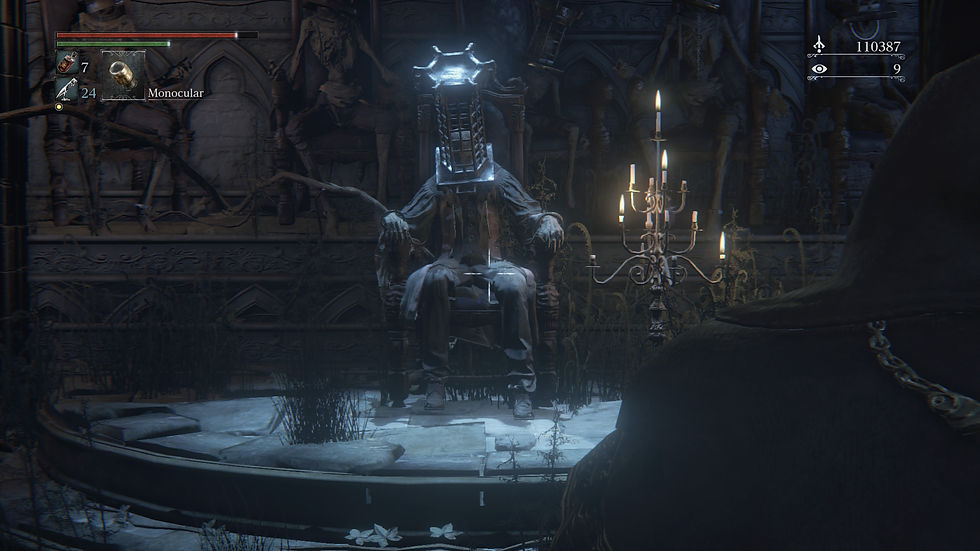How to Return to D&D after the New Edition
- Alex Heath

- May 7, 2025
- 7 min read
Updated: May 13, 2025

It is the summer of 2024, and Detroit has had temperatures in the 90s far too long. My apartment has no A/C—its an old building from the early 1900s that boasts hardwood floors, creaking radiators, and landlord-white windowsills—and all my windows are open in preparation for guests to come sit around my table and play Dungeons & Dragons. We have been playing since freshman year of college together in 2018, and now we are gearing up to embrace the new 2024 edition of the player’s handbook that releases in August. The air is sticky, the cans of Faygo sweat like they have gotten a deathly fever, and everyone squeezes in for another session of adventuring all over the shop.
The campaign would go on to end unceremoniously, as most campaigns do, with mutual miscommunication and generally petering out without great fanfare. In another group we changed from D&D to a handful of smaller tabletop roleplaying games (TTRPGs) while our Dungeon Master started graduate school. Games like Monster of the Week (MotW) and Warhammer 40,000 Roleplay: Imperium Maledictum, neither of which plays even slightly like Dungeons & Dragons or each other. Both games are really great! As a rules-light TV-inspired mystery game, Monster of the Week is a great replica for the Scooby-Doo/Supernatural/Buffy the Vampire Slayer immersive experience. Imperium Maledictum goes the full other direction with a rules-dense grim-dark setting inspired by the Dune novels: Dark gothic technology, luddite religious zealots, Latinate names, and all. Honestly, the dabble into MotW and the longer time spent in Imperium Maledictium were really enjoyable as the weather grew cold and the encroaching winter months brought the darkness in before the end of our 1pm sessions.

It has been about a year since I last played the biggest American tabletop game. In that time, I played other games, got back into Bloodborne, entered in to Wayne State’s English Ph.D. program, and watched way more movies that I have since I took a class entirely based on vampire films. I played a LOT of Shadow of the Erdtree and wrote about the way it depicts sainthood. As spring neared, I took a class on literary nonfiction, and picked back up my reading habit that I had neglected for course work. With a summer off before I have to return to teaching and learning, I figured that now would be as good a time as any to return to playing as well as running what Wizards of the Coast has deemed “One D&D.” I am prepared and well-read and full of references I can use against my players and while writing a compelling character for my dungeon master.
I’ve noticed a few things in particular as I return to the game, things that are because I’ve changed since I last played but also because the game has changed: 1) The digital economy of D&D has grown more robust, with plenty of third-party content becoming available on dndbeyond.com, the official online toolset for the game to allow easier character creation and campaign management. On the other hand, most of these third-party products only work with the old 2014 D&D system and are not even available to look at when it comes to the new basic rules.

What this means is that, when I get inspired by the look of the Studio Ghibli-esque setting book Obojima: Tales from the Tall Grass by 1985 Games, I am met with the unpleasant reality of the new spells, classes, and items being locked into the old system and rules that are 10 years old. The simple answer, one that I have even said when people mention criticism about new rules, is to “just continue using the old rules.” In any other circumstance I would agree, but the old rules are no longer the default, and the shop does not indicate what rule set the 3rd party content works with, which is just really irritating, especially since I would much rather buy directly from the original publisher if I knew it wouldn’t seamlessly integrate with my characters. Obojima is only one example, the ever-growing list of licensed products has made including them in one’s sheet tedious as well! I find myself faced with the rare problem of too many options when I start to build my character, which brings me to my second item. 2) When I am faced with the thousands of pages of options to build a character with, I do not feel inspired by the options given in the current One D&D ruleset. As Wizards of the Coast has made the game more approachable and easier for beginners, they also have removed some of the harder setting details that gave the game charm and the pleasurable constraints that made writing in its world a pleasurable experience. I am not trying to say here that the original lore from the 1970s should still see use today, there was plenty of cultural change that the game should account for with each edition. I think that Dungeons & Dragons has gone through a very similar (over?)simplification that the Fallout franchise went through during its transition from Black Isle Studios to Bethesda Softworks. In the original Fallout and Fallout 2, the game features many systems and rich dialogue trees and outcomes, presented by simple sprite visuals and a third person isometric point of view that was significantly less taxing on staff and consumer PCs than the first-person 3D-rendered environments of nuclear-ravaged Washington D.C. The change to simpler narrative and fewer branching outcomes allowed Fallout to appeal to a much wider audience, while simultaneously removing many features, like more complex dialogue trees and character engagements, which were possible in the earlier games.
I am coming back, as I said, as both a player and as a Dungeon Master, and while I’m looking at uninspiring options as a player, I feel the situation for running the game is different and more personal. Looking back at the stories that I once ran for my friends, stories based on the kinds of things that I liked to read, like secret wizard societies, or the 2nd campaign of Critical Role that I watched religiously when it came out, or the kind of dark fairytale lands I read about in my medieval literature classes, few of those stories landed well since they were based in what I wanted as a player rather than what my players would want to actually engage in. My most successful being an ambitious campaign set in Matt Mercer’s Wildemount setting that ran every week from July 2021 to August 2022 when I had to drop it when thrown in to teaching my first college-level course. It included 11 players (as opposed to the recommended 3-4) across two groups that could meet each other as the game went on. It’s this campaign that I am going to start running again, as my players have vocally asked for over the three-odd years since it wrapped up. In theory, I do not need to worry about inspiration, since I will not be starting entirely from scratch as I had to when the project began, and the speculative number of players at the time of writing is significantly less than 11.
Yet, I still yearn to pursue new stories in new game systems. I like to think that this won’t pose a problem for running the game that I’ve promised everyone, but that is not something I can know until we’re in the thick of it. I look to my shelves and see Monster of the Week and think about the story of a group of monster hunters set on the pacific northwest in 2009—a game that would be scored like Life is Strange. There’s also Vampire: The Masquerade, a somewhat awkward system that would prove a really great angsty outlet and give me a chance to see all my friends get their goth on. This struggle for what kind of story to tell is hardly made easier when I get caught up in a new actual play series from Oxventure.

To make this transition back in to the game easier I have set myself a few personal rules, though I suppose they also extend to my friends as well. One of them being to avoid overthinking when it comes to the character I want to play. I settled on a chaotic good farmer from a small village who has developed sorcerer powers, nothing too crazy. Once upon a time I was interested in playing overly complicated characters, characters that I knew better than anyone else and would come across as inscrutable and—I’m sure—on the dickish side. Often I would return to the combination I was most comfortable with, a tiefling warlock, but with more twists. One time a noble looking to reestablish connections with trade mavens or other noble houses, another time a beggar looking to survive and making a desperate deal for magic, or a 3rd time, a soldier from the front lines of battle in the Nine Hells. By going for something more archetypal to start, a provincial who is eager to experience the world with more goals than expectations for what he will find. I hope that this will lead to a more flexible game even though I know less about what the systems have to offer. Another rule: calendars. Calendars to help keep myself and everyone else on track. Scheduling is certainly the most soul-sucking part of getting the game to happen, and while I had always thought of flexibility as a desirable trait I don’t think that it is as feasible as it once was. Obviously each person’s mileage may vary with this rule, but with my ever-drifting mind deadlines are crucial to keeping my time organized. If one mind tends to wander, then a D&D group can feel like wrangling cats—even when its for something we all want to do.
But this is why—even after all of the complication that led to leaving and the challenges of coming back—I return to this game with my friends: I want to tell stories with them. Picking a system to settle into for a year seems difficult not because it might be hard to justify such a lengthy commitment, but because limiting myself to just one kind of story does not feel satisfying enough! Why find oneself stuck in the medieval fantasy, playing questing heroes in search of treasure and fame when we could all change it up and come to the table with the kaleidoscope of vampire traditions at our fingertips? Or acting out grungy early 2000’s monster hunters in the woods of north pacific United States? Or, in the near future, cyberpunks looking to earn a quick buck and make it ‘till tomorrow? There are far too many enticing stories to tell and to see my friends bring their perspectives to as well.



Comments